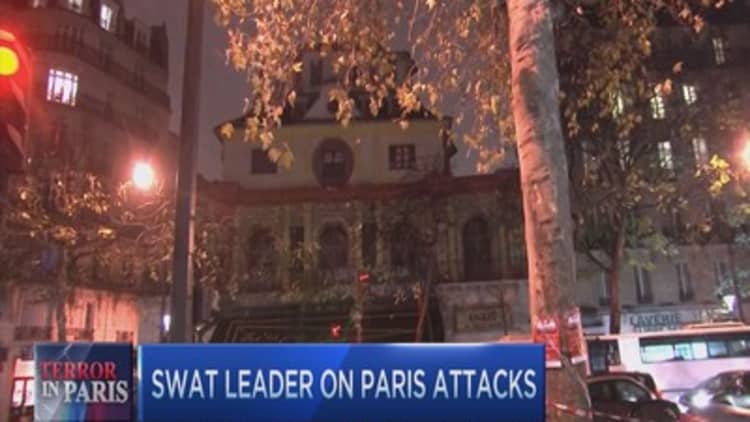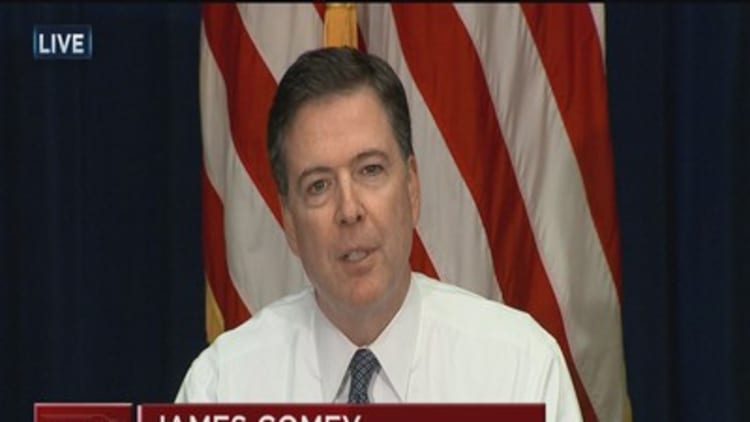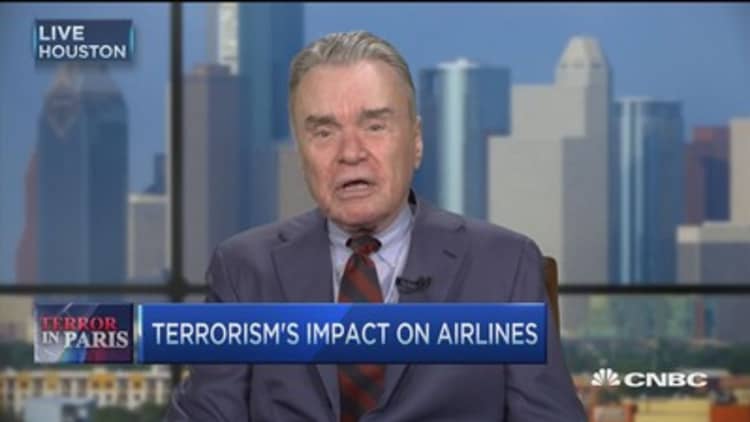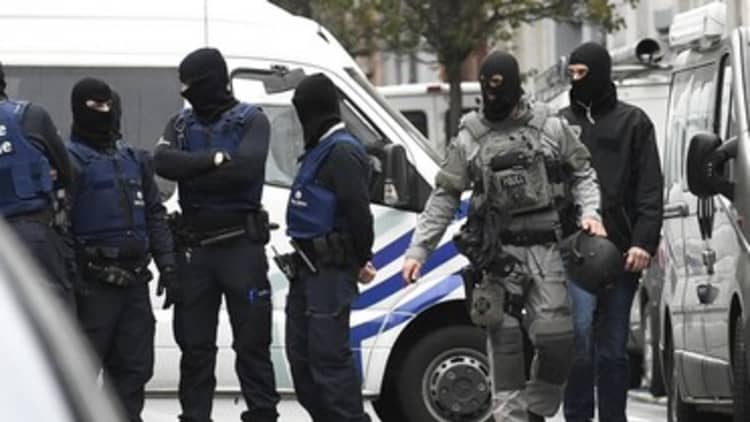



France's President Francois Hollande has declared the country "at war" with terrorists from the so-called Islamic State – but what are the likely economic consequences?
Less than a week after the tragic events in Paris where ISIS terrorists killed 129 people, the French government has already made two substantial airstrikes on the group's territory in Syria. Hollande has swept aside European Union rules on the size of the deficit France can run to fund these raids, and said this week "The security pact takes precedence over the stability pact."
Yet, in the classic military Keynesian analysis, spending on waging war can be a stimulus for the economy.
"Public spending strengthens significantly during war time, but private spending weakens because uncertainty affects consumption. On balance, there will be stimulus for demand," WillemBuiter, chief economist at Citi, told CNBC.
"Wars are never funded in a balanced budget fashion."
The European Central Bank may be about to inadvertently lend Hollande a hand, by increasing its stimulus to the region's economy and even further lowering borrowing costs. On Thursday, while ECB minutes didn't offer a whole lot of new information they were interpreted by many in the stock markets as hinting towards a possible further easing in December.
"With the likely increase in QE by the ECB in December, the two together amount to monetising debt and deficit by the back door," Buiter said.
"If you had to borrow, it's a good time to do so, but it's an even better time to print money."
France is already a relatively big military spender, particularly for a state bordered only by friendly Western European peers. Last year, it spent $53.1 billion on defence, a similar level to India, which has a much higher population and borders with Pakistan, a country with which it has historically conflicted. It also has more nuclear weapons than China.
After years of concerns about its economy following the credit crisis, Hollande had been supposed to cut spending on arms, but this has now been ruled out.




